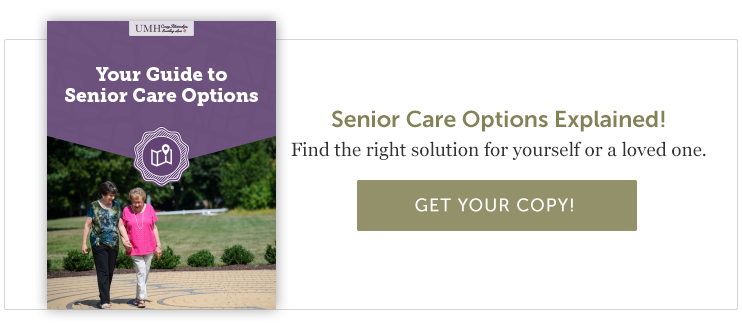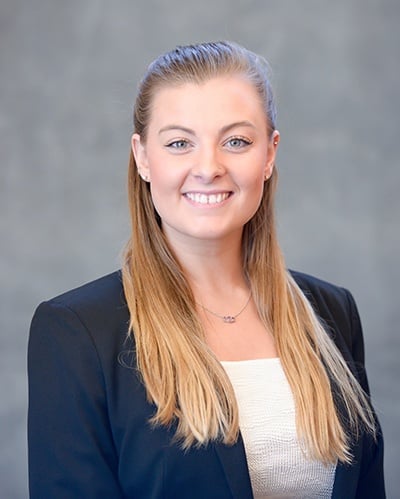Why Transitioning to Assisted Living is the Safest Move After a Fall
A fall is traumatic, both for the senior who experiences the fall and the family who is scared and now faced with decisions about their loved one’s future care. If your parent is recovering in the hospital or a rehab facility, you’re probably eager to get them home and back on the road to the recovery. But, after a fall, transitioning to assisted living could be the best move for your loved one.
Find out how transitioning into an assisted living community is the best move for your parent after a dangerous fall.
Faster Recovery
Even if your parent has been through physical therapy, there can still be a long road to recovery ahead of them. The idea of going home might be a comfort, but it’s very likely that your parent’s home isn’t the best place for them to be right now. After a fall, assisted living communities offer resources to keep your parent active and healthy in a safe, controlled environment. Here are a few reasons transitioning to assisted living is ideal:
Excellent Care
At home, your parent’s access to care is limited. They could either receive at-home care a few times a week or travel to physical therapy sessions. Either option is inconvenient. With at-home care, your parent may not have the space or equipment essential for physical therapy. And, with injuries after a fall, traveling by car to physical therapy sessions could be uncomfortable -- not to mention the inconvenience of finding a ride!
Assisted living communities have all the care resources your parent needs to recover completely from their fall. Your parent has access to specific care addressing their injuries, and also ongoing fitness and physical therapy programs to stay active, like Tai Chi, Yoga, or Zumba.
Even activities that you might not think of as physically demanding, like gardening or trips to the mall, keep seniors mobile and exercising. Many assisted living communities plan excursions out of the community or have clubs that help seniors engage with their environment and stay in great physical shape.
While your parent could take a Yoga class or spend time in their garden when they’re living at home, it’s much harder to travel and schedule these outings. When you live in an assisted living community, all of these benefits are only steps away.
Nutrition
When recovering from an injury, many seniors find it hard to maintain a healthy diet. After a fall, you don’t want to be on your feet cooking a big dinner for too long, and if a senior is living at home, family members probably aren’t able to be there for every meal. However, a healthy diet is essential in making a full recovery.
Transitioning to assisted living means seniors have access to three healthy meals each day. Experienced chefs prepare a wide array of delicious (and nutritious) foods and seniors have community staff members there to help monitor their diet. So, if your parent has diabetes and struggles to manage their blood sugar, staff members at the assisted living community can create a diabetes-friendly meal plan tailored to their specific medical needs.
When it comes to care, transitioning to an assisted living community is ideal for seniors. They’ll receive around-the-clock care and assistance, making their recovery and this stage of life easier.
Ease of Transition
Yes, a fall is tough on seniors, but it's also tough on caregivers and family members. Between the constant worry about your parent’s recovery and the need to monitor them to ensure a fall doesn't happen again, this can be a difficult time for everyone involved.
In many ways, it’s easier for seniors to transition to assisted living after a fall, rather than going back home. You probably don’t have the time or energy to give your parent the level of care they need, and you don’t want to force independence on them prematurely.
It’s much easier to move directly to an assisted living community because after a fall, your parent has a clear reason to move directly into an assisted living community. In fact, your parent may have already realized they need an increased level of care and be more willing to make the move at that time. If they move directly into a community, the rest of the family can worry about cleaning up the house and the moving process without overwhelming them.
However, as with any transition, you might run into some resistance. Your parent may not be ready to move in at this time. They may just want to go home. This is your opportunity to explain all the benefits of moving into an assisted living community.
Healthier Lifestyle
Living at home puts a lot of demands on your parent that, post-fall, they may not be able to keep up with, like housekeeping, yard work, grocery shopping, and more. The best way to relieve your parent of this burden is by helping them transition to assisted living.
In an assisted living community, all of these tedious tasks are taken care of. Someone else keeps the landscaping looking nice. Someone else can take care of the laundry. All of the tasks that could be a strain on your parent are covered when they live in an assisted living community. With the responsibilities off their shoulders, they can focus on recovery and enjoying this chapter of life.
Safety First
Ultimately, safety is the best reason for your senior loved one to transition to assisted living. Once a fall has happened, it’s likely to happen again, which could come with greater injury the next time. Because injuries associated with falls like broken bones or hips are some of the hardest injuries for seniors to recover from, you can’t risk another fall happening.
Before your parent moved back into their home, you would need to make some changes to ensure it’s a safe place for them to live. These updates could include installing ramps, rails, medical alert systems, handicap accessible bathrooms, and more. Every change comes at a price, not to mention the expenses of in-home care.
Moving to assisted living solves all these problems. These communities are designed with seniors and their mobility needs in mind. Because communities are already handicap accessible, your parent will be safe from the moment they arrive. Staff members are on hand to help a senior avoid a fall, or if a fall occurs, someone if there immediately to help.
Falls come with a lot of pain for your parent and great worry and concern for the rest of your family. The best way to protect your parent and provide a safe, healthy environment is to help them transition to an assisted living community.
Do you want to help your loved one transition to an assisted living community? Download this guide on different senior care options that are available to you.
About Chelsea Sayegh
I started working as a Marketing Coordinator for United Methodist Homes in October of 2016. I work on public relations, website management and community planning for their award winning independent and assisted living communities. As a graduate of Ursinus College with a degree in Media and Communications and a passion for serving nonprofits, United Methodist Homes has become my home away from home. I spend my days working in a community filled with smiling faces, helpful hands and wonderful residents. I have a passion for assisting seniors and take great pride in being able to promote a company with such a positive mission and values. As an individual committed to learning and growing, I have jumped right into this exciting career!

Our Blog is a 2016 Platinum Generations Award Winner! The Generations Award is an annual international competition for excellence in senior marketing recognizing professionals who have communicated to the 50+ Mature Markets.



